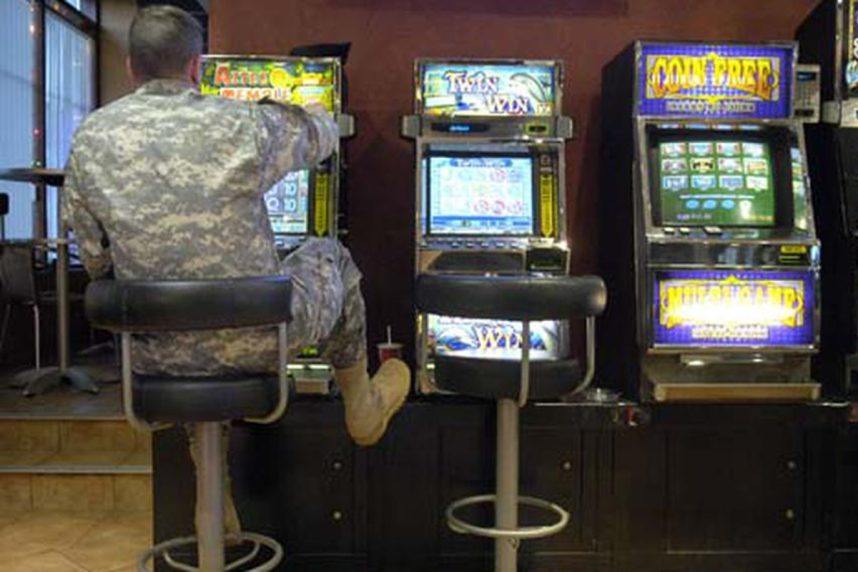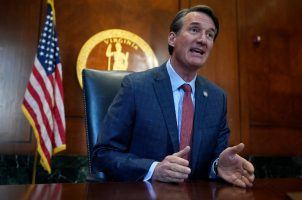US Lawmaker Proposes Banning Slot Machines on Overseas Military Bases
Posted on: June 6, 2024, 06:50h.
Last updated on: June 7, 2024, 09:06h.
Slot machines on overseas United States military bases could soon be turned off if a congressional lawmaker from New York gets his way in Washington, DC.

It might come as a surprise to some that Las Vegas-like slot machines remain on many overseas military installations run by the US government. US Rep. Paul Tonko (D-New York) thinks that’s a bad thing and wants the gambling terminals removed.
Tonko hopes to accomplish that by tacking on an amendment to the National Defense Authorization Act (NDAA) for the 2025 fiscal year. Tonko submitted an amendment to the annual federal bill before the May 31 deadline.
Amendment 624, if approved by Congress and added to the US Department of Defense budget bill, would prohibit “funding from being used to operate slot machines on military bases.”
Tonko, a congressman since January 2009 representing New York in the US Capitol, is becoming an outspoken critic of sports betting in Washington, DC. Since 2023, he’s been pushing federal legislation to restrict how sportsbooks advertise their services and products on the belief that the expansion of sports gambling is causing societal harm.
Military Slots Big Business
According to Military.com, the US military banned slot machines on all domestic bases in 1951. Gaming machines were removed from overseas stations in the 1970s, but after soldiers ventured off base to gamble — sometimes at underground illegal gambling hubs — the military brought back the terminals in the 1980s.
Military.com says as of 2017 there were more than 3,000 slot machines on US military bases in 12 countries, with most in Japan, South Korea, and Germany. The US government functions as the casino, or house, in reaping the financial windfall the games generate. Of course, that revenue constitutes gambling losses incurred by the military community.
The US government has used the slot money, which in 2015 Casino.org reported to be north of $100 million a year, to fund other recreational activities on military bases. In 2015, US Sen. Elizabeth Warren (D-Massachusetts) sought to outlaw slot machines on military bases on the belief that it was resulting in gambling addiction problems among service members.
Nearly a decade later, Tonko is raising the same concerns.
I’ve been leading the charge in Congress to address the rise in problem gambling, and I’m hopeful my NDAA provision would lessen the risk of our service members developing a gambling addiction,” Tonko told Military.com.
“Our brave servicemen and women sacrifice everything to protect our nation and its freedoms. We must do all we can to support them by confronting problem gambling head-on and ensuring this known addictive product is treated with the seriousness and precaution that we do with other addictions,” Tonko added.
Odds Long
The 2025 fiscal year version of the National Defense Authorization Act received more than 1,300 amendments. Since the defense spending bill is a must-pass annual piece of legislation, it’s a prime target for legislative pork, though Tonko’s provision is certainly military-focused and relevant.
The NDAA begins in the House Rules Committee where the 13-member committee will determine which amendments move forward with additional consideration and a possible vote. The House, however, is controlled by the Republicans and has a nine to four majority advantage in the Rules Committee.
Republicans in the past have been slow to support the removal of slots from overseas military bases. GOP members say a bit of entertainment and enjoyment for those who wish to participate isn’t something that Congress should stand in the way of.
Related News Articles
New Jersey Racetracks Seek Slot Machines, Legislation Filed For Referendum
Alaska Marine Highway System Proposed for Onboard Slot Machines
Most Popular
FTC: Casino Resort Fees Must Be Included in Upfront Hotel Rates
Genovese Capo Sentenced for Illegal Gambling on Long Island
NBA Referees Expose Sports Betting Abuse Following Steve Kerr Meltdown
UPDATE: Former Resorts World & MGM Grand Prez Loses Gaming License
Most Commented
-
UPDATE: Whiskey Pete’s Casino Near Las Vegas Closes
— December 20, 2024 — 30 Comments -
Caesars Virginia in Danville Now Accepting Hotel Room Reservations
— November 27, 2024 — 9 Comments -
UPDATE: Former Resorts World & MGM Grand Prez Loses Gaming License
— December 19, 2024 — 8 Comments -
FTC: Casino Resort Fees Must Be Included in Upfront Hotel Rates
— December 17, 2024 — 7 Comments
















No comments yet